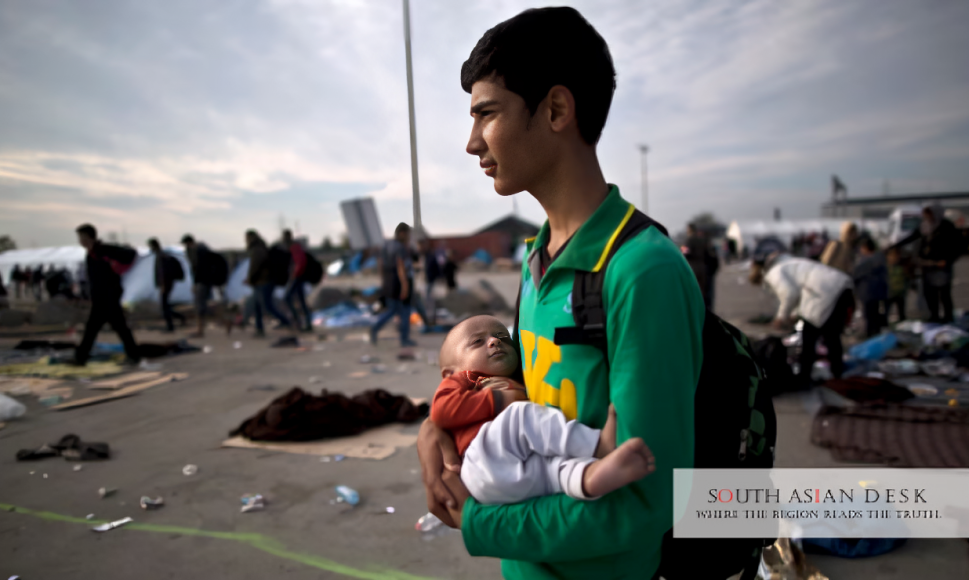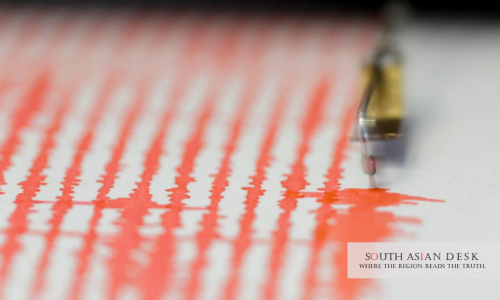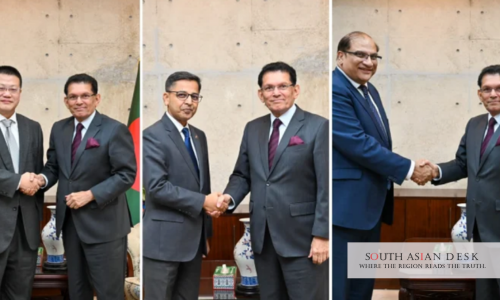Nineteen European countries return Afghan migrants, living illegally in the bloc. This move, led by Belgium, targets voluntary and forced repatriations amid security concerns. It follows Germany’s recent deportations and aims to address post-2021 challenges.
The development holds significance for South Asia as Afghanistan grapples with mass returns from multiple regions. Increased EU Afghan deportations 2025 could strain Kabul’s resources and heighten regional tensions with neighbours like Pakistan and Iran, who are also repatriating Afghans.
European Countries Return Afghan Migrants: Details
A joint letter signed by ministers from 19 EU member states and Norway calls on the European Commission to prioritise the return of Afghan nationals without legal residency. The signatories include Austria, Belgium, Bulgaria, Cyprus, Czech Republic, Estonia, Finland, Germany, Greece, Hungary, Ireland, Italy, Lithuania, Luxembourg, Malta, Netherlands, Poland, Slovakia and Sweden. They argue that the lack of a formal agreement with Afghanistan since the Taliban seized power in 2021 has hindered deportations, even for those convicted of crimes.
This initiative seeks to enable European states repatriate Afghans through coordinated efforts. The letter proposes tighter collaboration between the Commission, the European External Action Service and willing countries. It also suggests expanding the role of Frontex, the EU border agency, in organising returns. For forced returns, the focus is on individuals deemed dangerous or criminal.
Belgian Minister for Asylum and Migration Anneleen Van Bossuyt stated: “We have a window of opportunity to act. It’s time for a firm and coordinated response, so the EU can regain control over migration and our security.” The letter warns that failure to act undermines public trust in EU asylum policies.
Germany’s Leading Role in EU Afghan Deportations 2025
Germany has already taken steps to return Afghan migrants. On 18 July 2025, a chartered flight from Leipzig carried 81 Afghan men back to Kabul. These individuals had failed asylum claims and criminal records. Each received up to EUR 1,000 to aid reintegration, in line with court rulings.
Interior Minister Alexander Dobrindt said: “This is how we begin to implement another part of the policy change from the coalition agreement. Deportations to Afghanistan must continue to be carried out safely in the future. There is no right of residence for serious criminals in our country.” The German Interior Ministry added: “These are Afghan men who are legally required to leave the country and who have a criminal record in the past.”
This flight marked the first under Chancellor Friedrich Merz’s government, which assumed office in May 2025. Berlin has engaged in talks with Taliban authorities, despite not recognising the regime. Dobrindt noted Germany is close to sealing a deal for regular deportation flights.
Other countries have followed suit. Sweden and Denmark have deported Afghans in recent months, according to reports. These actions reflect a broader trend where European states repatriate Afghans to address migration pressures.
Broader Context and Data
Afghans rank among the top asylum seekers in the EU. In July 2025, they lodged 4,900 first-time applications, the second-highest group after Venezuelans. Germany received the most Afghan applications, with 9,900 in May 2025, down 47% from the previous year.
The EU has non-binding readmission arrangements with Afghanistan, but these have been ineffective since 2021. The Commission proposed a new common approach on returns in March 2025 to streamline procedures.
UNHCR data shows 2,842,760 Afghan returnees in 2025, mostly from Iran and Pakistan. Deportations totalled 1,365,660, with Iran accounting for 91.9%. No specific figures for EU returns were available, but the agency maintains a non-return advisory due to human rights concerns in Afghanistan.
EU Special Envoy Gilles Bertrand announced EUR 50 million allocated for Afghan returnees this year, to be spent through UN agencies. He emphasised continued EU commitment to Afghanistan.
Humanitarian Concerns
Critics highlight risks in Afghanistan. UN spokesperson Ravina Shamdasani cited the non-return advisory. Arafat Jamal from the UN Human Rights Office noted ongoing violations.
Refugee rights activist Alireza Karimi said: “Forcibly returning asylum seekers to Afghanistan under current conditions contradicts humanitarian principles and international refugee protection obligations.” Political analyst Wais Naseri added: “The deportation of these individuals from European countries to Afghanistan is a serious issue, as none of the European states, the EU, or most countries around the world currently have formal or legal relations with the current rulers of Afghanistan.”
Juma Khan Pouya, another advocate, stated: “No country has the right to punish or deport refugees and individuals at risk under any circumstances.” The Islamic Emirate of Afghanistan supports resolving migrant issues through dialogue.
Background
Since the Taliban takeover in 2021, EU deportations halted due to safety fears and lack of diplomatic ties. Afghans form a large diaspora in Europe, with Germany hosting many. Recent political shifts, including Merz’s election, have prompted tougher stances.
In May 2025, Denmark, Italy and nine others called for hardened migration policies. This aligns with EU-wide reforms.
What’s Next
The Commission may initiate talks with Kabul, potentially leading to joint missions. However, UN advisories could complicate matters.
As EU Afghan deportations 2025 intensify, European states repatriate Afghans at a growing rate. This could reshape migration flows, but 19 European countries return Afghan migrants only if humanitarian safeguards are addressed.
Published in SouthAsianDesk, October 20th, 2025
Follow SouthAsianDesk on X, Instagram, and Facebook for insights on business and current affairs from across South Asia.






